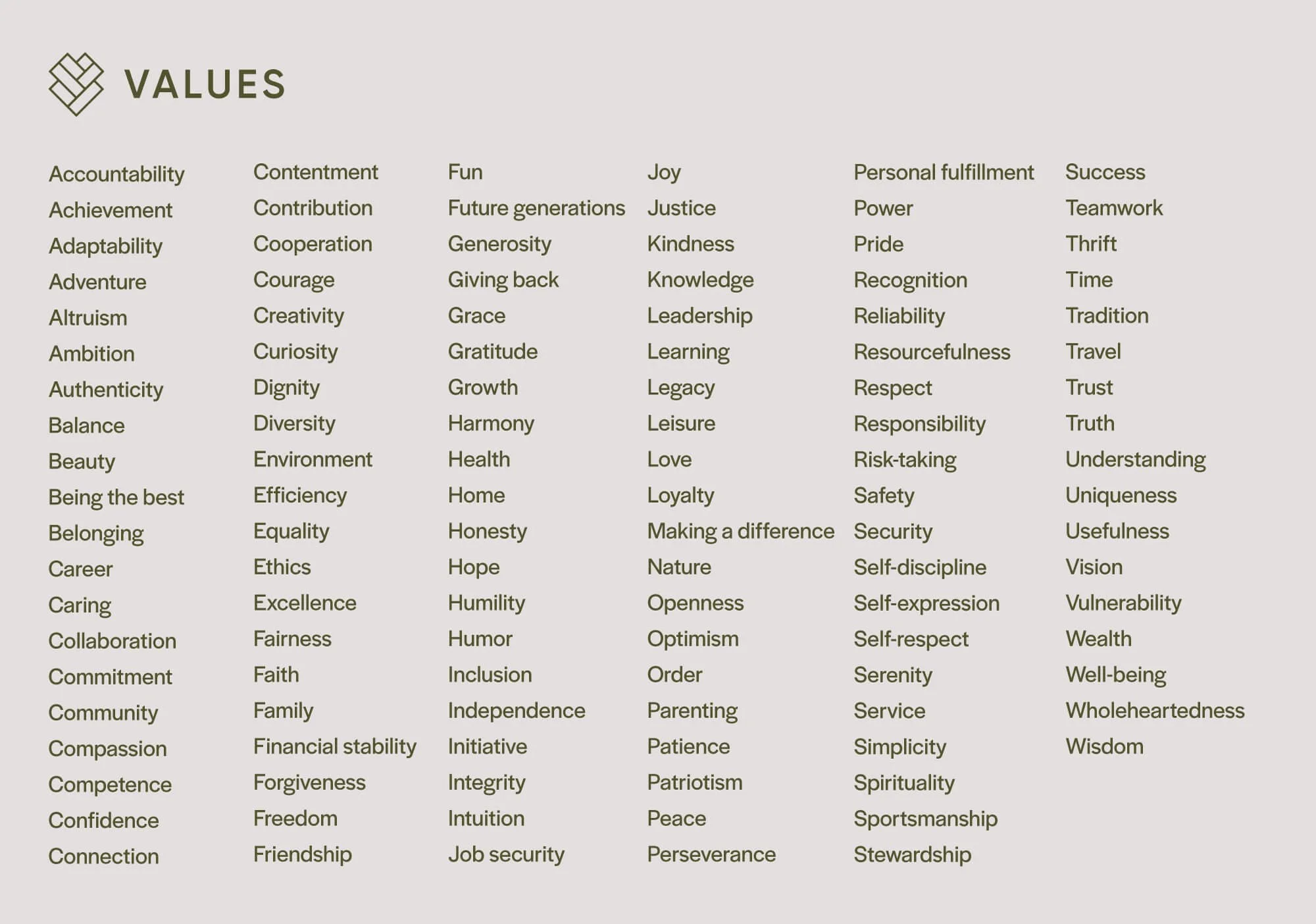Values vs Goals - Unlocking your superpower
Photo by Max Gotts on Unsplash
During a recent Authentic Leaders Group immersion experience at Uluru, our guide, Nacho (more on the origin of the name later), shared an intriguing anecdote about how the native indigenous people from Kata Tjuta counted things.
Their numbering system consisted of only three categories: 1, 2, and many. There were no specific numbers beyond two. This simplicity and clarity got me thinking — maybe they were onto something? We can apply a similar powerful logic when establishing our values. By hyper-focusing on just two core values, we can gain remarkable clarity and direction in our lives.
So, what exactly are values? I like to think of values as our own personal North Star — the guiding principles that shape how we live our lives. Values can be defined in various ways: standards of behaviour, guiding principles, beliefs that inform our actions, or even a code of ethics. Ultimately, values determine our thoughts, actions, our ability to discern right from wrong, and our interactions with others. Whether evident or not, we all have values.
Beneath values lie our beliefs, and exploring how these beliefs are formed is a powerful exercise in self-awareness. To uncover your beliefs, consider the emotions that evoke the strongest reactions within you — fear, worry, anger, love, happiness, passion, gratitude. To gain further clarity on your beliefs, reflect on recent situations that triggered these emotions.
Now, ask yourself these three questions:
When did I form this belief?
Who influenced this belief?
Does this belief still serve me?
Challenging your beliefs is an ongoing process. I’d like to say that I took some time out a few years back to really focus on my beliefs but that’s not true. Over time I have learnt to step back from a powerful emotion (belief) and challenge it without applying any judgement to the thought/feeling so that I can objectively get to that point of either keeping the belief or abandoning it. That’s taken a tonne of work and many metaphorical blood noses (moments of hurt, shame, vulnerability, arguments, passive aggressiveness) along the way. Equally - there have been some really great moments of breakthrough (happiness, vulnerability, a weight being lifted, connection, understanding, love).
By challenging your beliefs and ensuring they still serve you, you can align yourself with the right path towards clarity on your values and the type of person you want to be. This notion of the "type of person you want to be" is not about setting unattainable high performance benchmarks or striving for an ideal that you'll only find happiness in once achieved. On the contrary, it involves showing up authentically as yourself, with self-love, accepting both your imperfections and greatness. This version of the "person you want to be" should reflect your happiest and best self — a version where you feel truly connected and a sense of belonging.
“This notion of the "type of person you want to be" is not about setting unattainable high performance benchmarks or striving for an ideal that you'll only find happiness in once achieved. On the contrary, it involves showing up authentically as yourself, with self-love, accepting both your imperfections and greatness.”
Brené Brown has developed an excellent process for crystallising your personal values, which I'd like to share. To start, you need to be able to name your values to gain traction with your North Star and understand what truly matters to you.
Below is an extensive list of values to choose from, and you can add any that come to mind but aren't on the list.
Next, select two values—either from the list or ones you've created—that define what is most important to you. This can be challenging as you may initially have ten or more values. Keep narrowing it down until you identify the two values that ultimately define and drive the best version of yourself.
To assist in this process, Brené suggests asking yourself the following questions:
Does this value define me?
Does this value represent me at my best?
Can I use this value as a filter to make difficult decisions?
In my case, my values are 1) Showing Up and 2) Self-Care. Initially, I had six values and struggled to narrow them down to two. However, upon reflection, I realised that Showing Up and Self-Care were the driving forces behind all the other values on my list. These two values serve as the core principles I can always return to, guiding me on my journey towards my North Star.
Finally, to translate values into everyday action, take a piece of paper or use your journal and write your first value at the top. Then, answer the following questions:
List three behaviours that align with this value.
List three slippery behaviours that take you in the opposite direction.
Describe a specific moment when you vividly remember living in alignment with this value.
Repeat this process with your second value. This is a technique I learned from reading Brené Brown's books, "Dare to Lead" and "Rising Strong." You can find more resources on this approach in "Dare to Lead."
It's important to note that values are not confined to work or personal life—they are simply values. There is only one set of values, and embracing them brings clarity, peace, and simplicity to your life. You'll find that decision-making and choices become quicker and easier. For a long time, I relied solely on goals as my reference point and focused on achieving them. However, I often ended up wondering, "Is this all there is?" when I achieved my goals, and I would regress if I failed to reach them, indulging in unhelpful behaviours and vices.
Now, let's revisit Nacho! Interestingly, Nacho's real name is Nigel. Nigel spent a significant portion of his life in Spain, and for some reason, whenever he introduced himself, people would respond with "Nacho!?" The name stuck, just like the lessons we can learn from his story.


